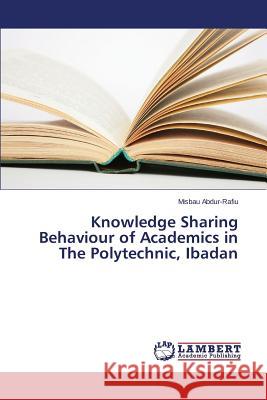Knowledge Sharing Behaviour of Academics in The Polytechnic, Ibadan » książka
Knowledge Sharing Behaviour of Academics in The Polytechnic, Ibadan
ISBN-13: 9783659785337 / Angielski / Miękka / 2015 / 152 str.
Recent development has witnessed the emergence of new economy where knowledge has become a valuable resource and asset. As things change speedily in this new economy, the concern is not only on how much you know, but also how quickly you can capture and apply what you have learnt. It is widely recognized that knowledge is the critical asset to individual as well as organization to succeed in the increasingly competitive environment (Jessica, Cheng and Lau, 2008). In the new era of the knowledge economy, knowledge-based work has replaced regular, sequential work with its characteristics of flexibility, complexity, and high uncertainty (Shieh-Cheih, Fu-Sheng and Kuo-Chien, 2005). It is well recognised today that knowledge is one of the most competitive resources for the dynamic global business environment (Sharif, Zakaria, Ching and Low, 2005). Within this context, an organisations ability to effectively implement knowledge-based activities becomes increasingly vital for the development and sustenance of competitive advantage (De Carolis, 2003; Grant, 1996; cited in Kharabsheh, 2007). Jessica, et al. (2008) explain that one distinguished characteristic that has made the new economy











